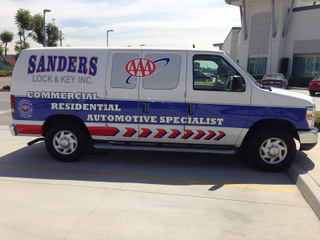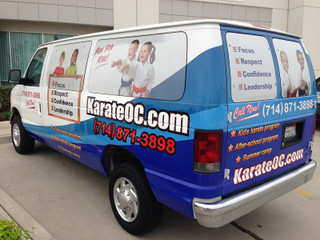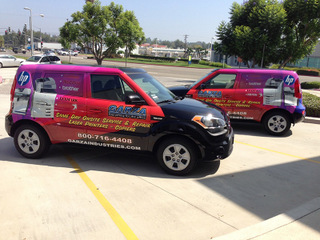- 6061 Dale Street - Suite G Buena Park, CA 90621
- Request A Quote
We are OPEN FOR BUSINESS and Implementing COVID-19 Safety Precautions – Click Below or Call for a Quote!

What materials are used in vehicle wraps?
Have you been toying with the idea of ordering some vehicle wraps for Orange County or L.A. County fleet vehicles but you just were not sure if this was the right material for you? Have you been wondering if this is a plastic product that easily rips or a rubber compound that will eventually burn or fade? Maybe you have seen some vehicles featuring old wraps or decals that were peeling and unattractively faded.
At Superior Signs and Graphics, we understand that our customers want to know the facts before making a major purchasing decision. So, what are vehicle wraps made of? Is the material more durable than its older cousins? Your questions – answered.
A: Most wraps are made of durable vinyl that features an adhesive backing on one side.

Bright, colorful and stunning wraps advertise 24/7!
A: The vinyl material can be significantly strengthened with the addition of poly vinyl chloride. When combined with the judicious use of plasticizers for flexibility, this material not only covers some bumps and scrapes so that they become invisible, but it also withstands the slight expansion and contraction that comes from changing temperatures.
A: Fading and cracking used to be problem years ago, when wraps first became popular. Since then, manufacturers have changed the makeup of the vinyl to remain pristine looking even when parked in the blazing sun for prolonged periods of time. The use of UV absorbers as well as heat stabilizers protects your investment and lets you enjoy about five years of use.
A: If the DIY stores offer you the use of 3M and Avery professional series wrap materials, then we might be using similar products. Of course, remember also that the material choice is only one aspect when considering the long term application of a good looking wrap. Having the right tools on hand and the expertise needed to work the material just right is another important piece of the puzzle. Some wraps fail not because of the material’s deterioration but simply because they were not professionally installed, which allowed dirt and moisture to undermine the material’s sound structure.

Ask us about vehicle wraps!
A: Not necessarily. As long as you use a vinyl wrap that is specifically manufactured for automotive use, the material should not be failing. More often than not, the bubbles that you see in some wraps are due to a faulty installation. Car wrap vinyl that is installed accurately actually allows for the escape of air, which in turn eliminates the problem of bubble formation.
A: Our experienced vehicle vinyl wrap installers will be glad to talk to you some more about the materials that we use, the specialty tools we rely on and the longevity of the finished product. Unless you are in the business, it is easy to get confused – and frustrated – by the sheer volume of information that is out there about vinyl.






